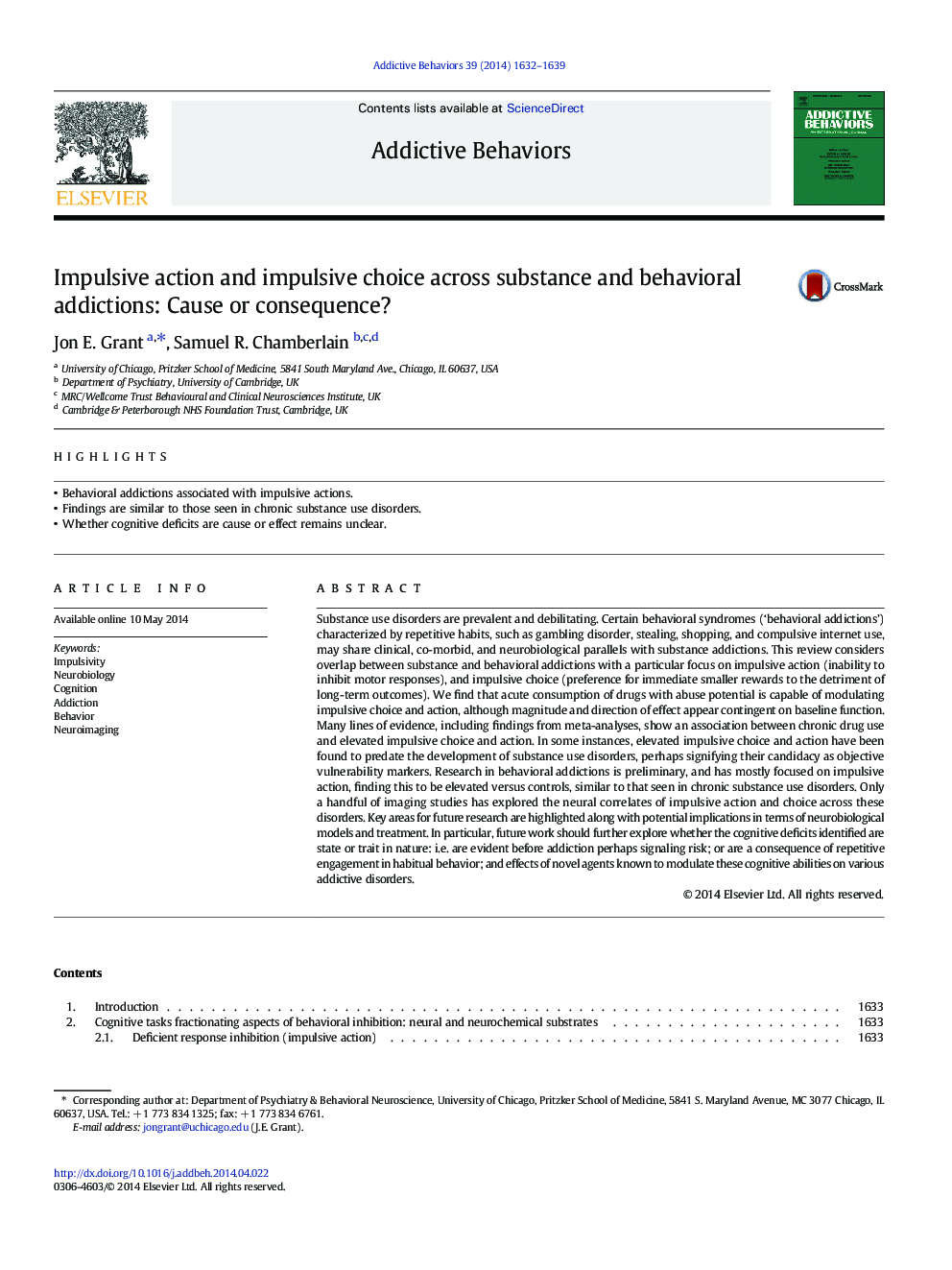| کد مقاله | کد نشریه | سال انتشار | مقاله انگلیسی | نسخه تمام متن |
|---|---|---|---|---|
| 898814 | 915343 | 2014 | 8 صفحه PDF | دانلود رایگان |
• Behavioral addictions associated with impulsive actions.
• Findings are similar to those seen in chronic substance use disorders.
• Whether cognitive deficits are cause or effect remains unclear.
Substance use disorders are prevalent and debilitating. Certain behavioral syndromes (‘behavioral addictions’) characterized by repetitive habits, such as gambling disorder, stealing, shopping, and compulsive internet use, may share clinical, co-morbid, and neurobiological parallels with substance addictions. This review considers overlap between substance and behavioral addictions with a particular focus on impulsive action (inability to inhibit motor responses), and impulsive choice (preference for immediate smaller rewards to the detriment of long-term outcomes). We find that acute consumption of drugs with abuse potential is capable of modulating impulsive choice and action, although magnitude and direction of effect appear contingent on baseline function. Many lines of evidence, including findings from meta-analyses, show an association between chronic drug use and elevated impulsive choice and action. In some instances, elevated impulsive choice and action have been found to predate the development of substance use disorders, perhaps signifying their candidacy as objective vulnerability markers. Research in behavioral addictions is preliminary, and has mostly focused on impulsive action, finding this to be elevated versus controls, similar to that seen in chronic substance use disorders. Only a handful of imaging studies has explored the neural correlates of impulsive action and choice across these disorders. Key areas for future research are highlighted along with potential implications in terms of neurobiological models and treatment. In particular, future work should further explore whether the cognitive deficits identified are state or trait in nature: i.e. are evident before addiction perhaps signaling risk; or are a consequence of repetitive engagement in habitual behavior; and effects of novel agents known to modulate these cognitive abilities on various addictive disorders.
Journal: Addictive Behaviors - Volume 39, Issue 11, November 2014, Pages 1632–1639
